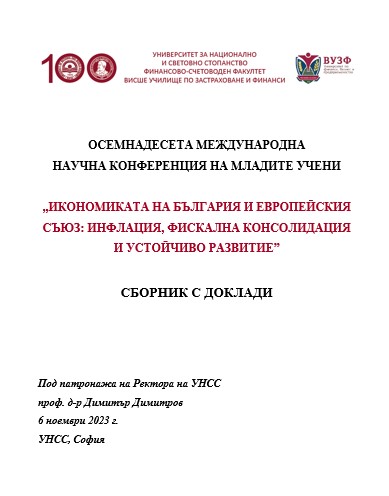Income Taxation in Bulgaria: 10 Years after Flat Tax: To Keep or to Move to Progressive Taxation
Income Taxation in Bulgaria: 10 Years after Flat Tax: To Keep or to Move to Progressive Taxation
Author(s): Presiana Ilieva
Subject(s): Politics / Political Sciences, Politics, Economy, National Economy, Business Economy / Management, Fiscal Politics / Budgeting
Published by: Университет за национално и световно стопанство (УНСС)
Keywords: income taxation; progressive taxation; Bulgaria
Summary/Abstract: One of the main objectives of fiscal policy is conducting optimal income taxation, because it has a central role in achievement of social justice and welfare. Income taxation influences the levels of employment and investment or affect the choices of individuals concerning their productivity at work. In the paper are presented the main theoretical models for income taxation. Crucial for income taxation policies is also tax calculation. Following the Criterion of Haig and Simons in tax estimation should be included all sources of income or so-called income from economic use of production factors, minus costs incurred for their acquisition. The tax liability is calculated as multiplication of tax income and tax rate. For determining tax rate some important moments must be considered, depending also on the taxation model conducted, amounts and tax group boundaries, the non-taxable minimum, the margin, upper tax rate, the public attitudes, the total tax amount to collect as budget revenues. From 2008, according to Personal Income Tax Law taxation system in Bulgaria has been introduced proportional taxation with 10% tax rate. The main objective of flat income taxation in Bulgaria is to help reduce the share of the informal (shadow) economy, leading to increase in tax revenues. At the paper are analyzed four main aspects of taxation influence to the whole economy: inequalities; revenues from direct taxes; the shadow economy and the investment activity. Implementing proportional taxation in Bulgaria had many objectives to achieve. Experts analyses in details the results from taxation in economic life. They suggest new models, which could work more efficiently in Bulgaria. The responsible politicians however are more influenced by lobbies and do not consider future taxation reforms.
- Page Range: 500-510
- Page Count: 11
- Publication Year: 2024
- Language: English
- Content File-PDF

